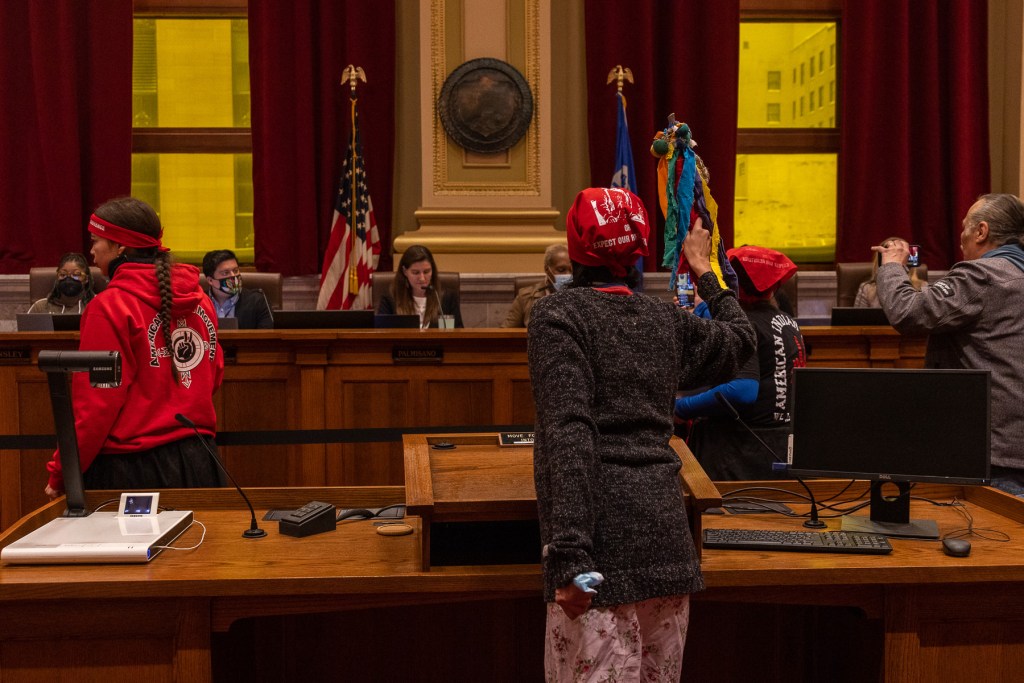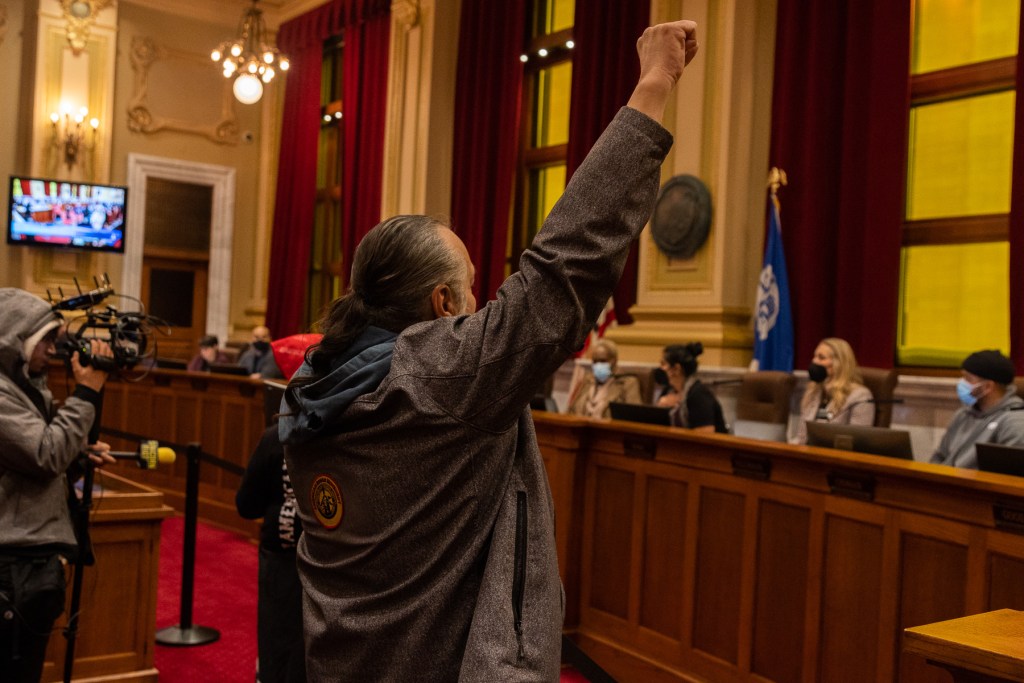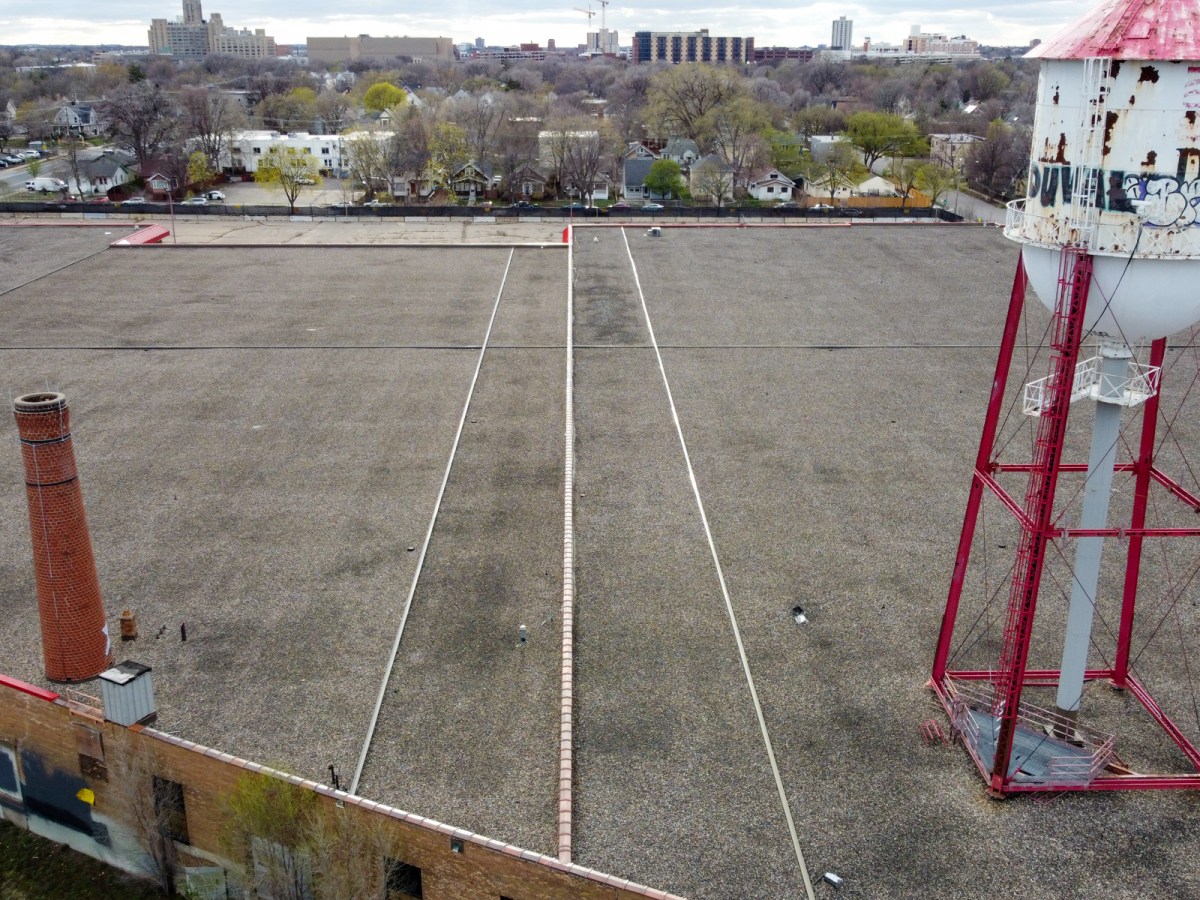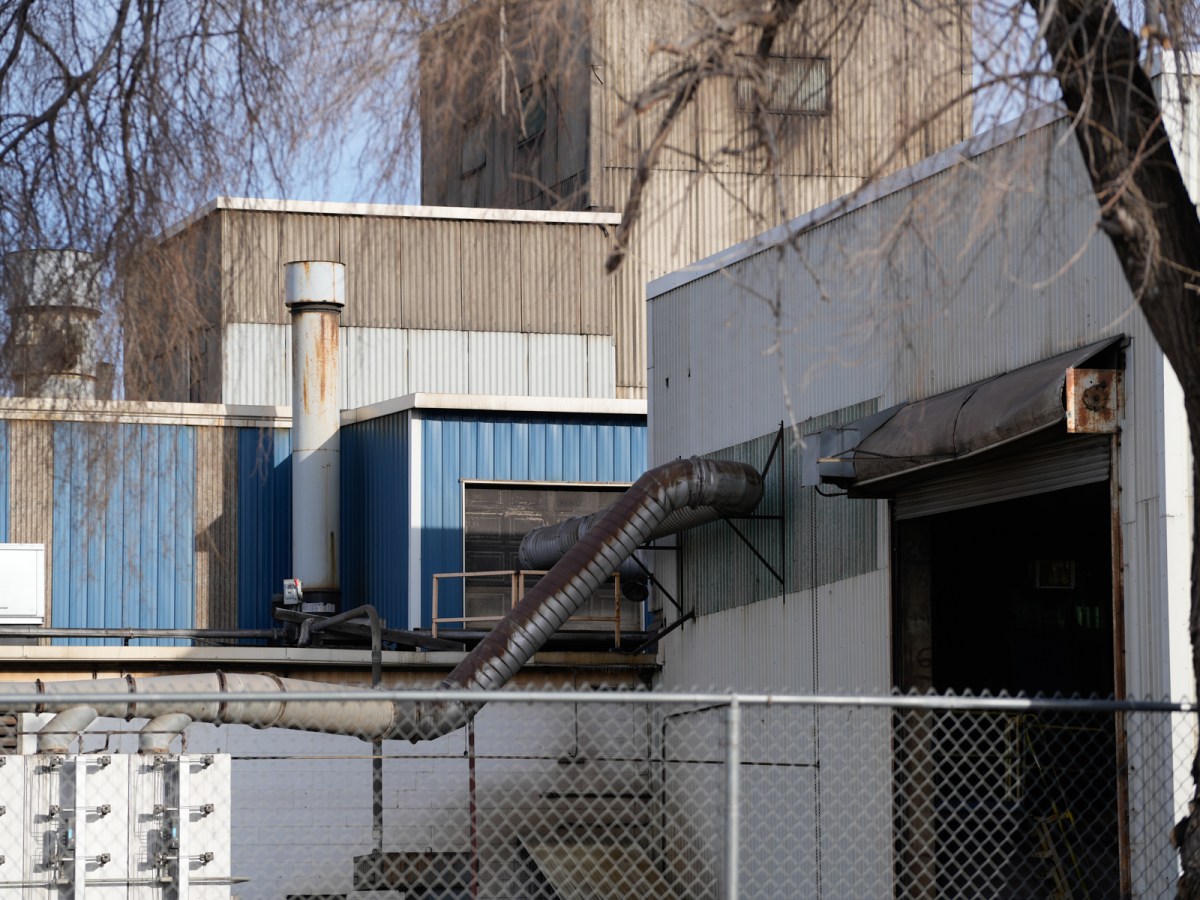Indigenous activists traveled via caravan from south Minneapolis to a Minneapolis City Council meeting Thursday morning to stop the demolition of a vacant warehouse that neighborhood residents want to use as an indoor farm and community hub. After the council rebuffed their efforts and forced them out of council chambers, activists pounded on Mayor Jacob Frey’s office door demanding that he meet with elders.
“Come out Frey! Come out Frey!” the group chanted as many held up signs. Frey did not make an appearance.
Thursday’s events are the latest confrontations between activists and city officials. Minneapolis police ousted several activists from the Roof Depot site Tuesday night during an occupation aimed at halting the demolition.
Activists from the Little Earth housing complex and other groups want to save an old Sears warehouse on the Roof Depot site near Little Earth. The building and 7.5-acre parcel of land is a former superfund site activists want to turn into an urban farm, affordable housing, and community hub.
The City Council voted 7-6 in January to demolish the warehouse so the city could expand its public works facility at the site. Demolition could begin as early as next Monday, February 27.

Dozens of activists attended Thursday’s City Council meeting in hopes of pressuring council members to cancel a previously approved contract to demolish the warehouse. Council Member Jason Chavez, whose ward includes the Roof Depot site, introduced a motion to cancel the city’s demolition contract.
The motion failed on a tied vote of 6-6, with one council member absent from the meeting. Council members Chavez, Aisha Chughtai, Jeremiah Ellison, Jamal Osman, Elliott Payne, and Robin Wonsley voted for the measure. Council members Lisa Goodman, Andrea Jenkins, Emily Koski, Linea Palmisano, Michael Rainville, and LaTrisha Vetaw voted against it.
Several protestors yelled at Council President Jenkins.
“This project will not kill anyone,” Jenkins said before threatening to have the public removed from council chambers.
“Native lives matter!” activists in the chambers chanted before the council took a 10-minute break.
The public was cleared from the chambers. When the council reconvened without the public in attendance, Chavez made another motion to begin a process to end the public works expansion project on the site. The motion failed on the same 6-6 vote.
The impending demolition has escalated tensions in the years-long battle between community members and city officials about what to do with the Roof Depot site, which sits at E. 28th Street and Longfellow Avenue.
Dozens of activists calling themselves Defend the Depot, a coalition of people from the American Indian Movement; the East Phillips Neighborhood Institute; Little Earth Protectors; and other environmental justice groups, erected a tipi and tent on the site Tuesday intent on occupying it until the city canceled the demolition.
Minneapolis police showed up hours later, forced the group out, and detained and cited eight people, according to Rachel Thunder, who was among the activists arrested Tuesday night.
Community members are concerned demolition will release airborne toxins into the East Phillips neighborhood. East Phillips is one of the most diverse neighborhoods in Minnesota, where 70 percent of residents are people of color and 30 percent speak a foreign language at home. It is home to Little Earth, a large and historic urban Native American housing community.

The site and surrounding neighborhood was declared a federal superfund site in 2007 due to contamination from a long-defunct pesticide plant that once operated nearby. The U.S. Environmental Protection Agency removed 50,000 tons of contaminated soil in the area.
City spokesman Casper Hill said the city removed activists from the site Tuesday because they were trespassing, and because a forecasted blizzard posed safety concerns.













